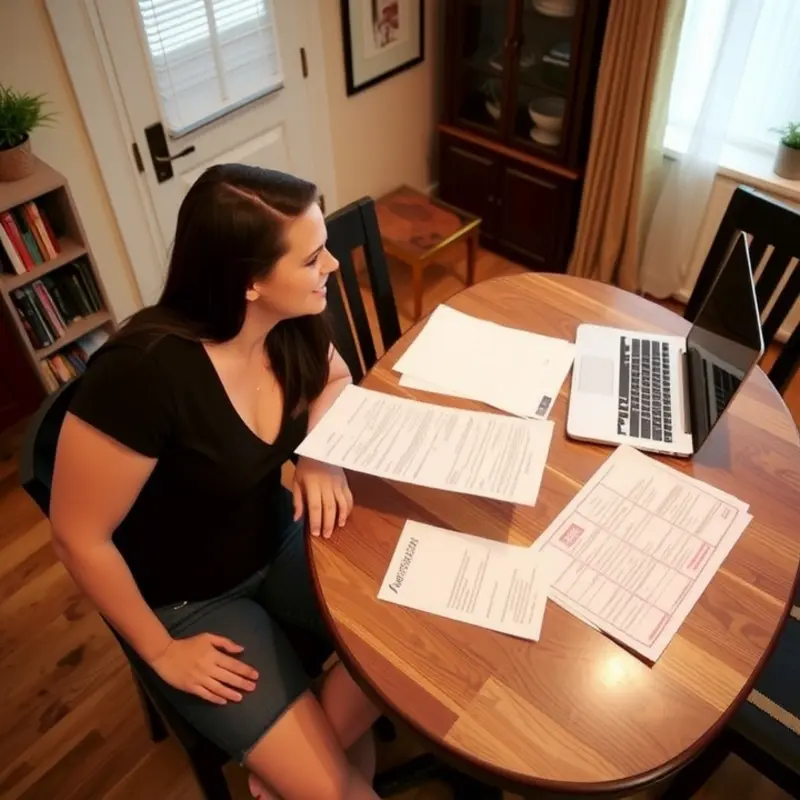Entering the rental market can be both exciting and overwhelming, especially for young professionals, first-time renters, students, couples, and families. One aspect often left unspoken is the tenant screening fee—a crucial concept that can impact your budgeting strategy. These fees play a pivotal role in the application process when renting a home. Landlords use them to ensure potential tenants can afford the lease and will take care of the property. However, many may wonder why these fees exist, how much they typically cost, and whether they are necessary. Understanding these elements is vital to navigating your first rental experience smoothly. By the end of this exploration, you’ll feel empowered with the knowledge to assess screening fees and make informed decisions that resonate with your financial goals.
Decoding Tenant Screening Fees

Tenant screening fees are a crucial yet often misunderstood part of the rental process. They serve as a preliminary step landlords use to ensure prospective tenants are suitable for their property. By paying a screening fee, renters authorize landlords to conduct background checks, credit evaluations, and rental history verifications. Understanding these fees can position renters to make more informed decisions during their apartment hunt.
Why Tenant Screening Fees Matter
For landlords, the tenant screening process is a protective measure. It minimizes the risk of renting to individuals who might default on rent or have a history of damaging property. For tenants, it serves as a way to demonstrate their reliability and seriousness about securing the rental space. This process benefits both parties, creating a foundation for a stable tenant-landlord relationship.
Typical Costs of Screening Fees
The cost of tenant screening fees can vary greatly depending on the location and the extent of checks performed. Typically, renters can expect to pay anywhere from $30 to $75 per application. Some states have regulations capping these fees, while others leave it to the discretion of the property owner. It’s vital for renters to inquire about any state-specific laws that may apply, helping them to avoid overcharges.
While it may be tempting to apply to multiple properties to increase the chances of finding a home, doing so can accumulate significant expenses in screening fees. Being strategic about where you apply can save money. For detailed strategies on this, consider reading about effective apartment hunting strategies.
Balancing Costs and Value
Some renters might question the value of screening fees, especially when faced with multiple applications. However, these fees offer more than just background checks. They ensure that all candidates are evaluated equally, maintaining fairness in the selection process. For properties with high demand, tenant screening allows landlords to make quick, informed decisions, often leading to quicker move-in dates for successful applicants.
In certain rental markets, some landlords might even use comprehensive screening results to offer incentives, such as reduced deposits or rent discounts for well-qualified candidates. This highlights the value of a solid rental and financial background.
Conclusion
Understanding tenant screening fees is an essential part of apartment hunting. These fees, while sometimes burdensome, play a critical role in the rental process. They provide landlords with necessary insights to make informed decisions, ensuring that they lease their property to reliable tenants. By knowing what to expect and strategizing your applications, you can navigate this aspect of renting more effectively, ultimately making the journey to finding your perfect home smoother.
Navigating Fees and Your Budget

Effective budgeting is essential when looking for a new rental home. Tenant screening fees, a common cost in this process, can impact your budget significantly. Being mindful of these fees and planning for them ensures you aren’t caught off guard.
Start by evaluating your financial situation to understand what fits within your budget. Allocate a specific portion for upfront costs like application and screening fees. This allocation should be distinct from essential expenses like rent and utilities. As a rule of thumb, consider setting aside an amount between $30 and $100 per rental application, as this is the typical range for screening fees.
When browsing listings, watch for potential red flags. A fee that significantly exceeds the usual range might indicate unjustified charges. In some cases, landlords might exploit this fee, knowing that prospective tenants are eager to secure a property quickly. Cross-check fees with other listings to assess fairness. If a fee seems exorbitant, don’t hesitate to ask the landlord for a breakdown of what’s covered.
Transparency is key. A reputable rental listing will clearly state all associated costs upfront. If fees are hidden or ambiguous, approach with caution. As a tenant, you have the right to understand what you’re paying for. Communicate openly with landlords or property managers about any unclear costs, and request confirmation in writing.
To manage these costs effectively, incorporate tenant screening fees into your broader financial strategy. Utilize budgeting tools to track all expenses related to moving. These can help you adjust and accommodate unforeseen expenses, ensuring they don’t affect your overall budget drastically. For further insights on financial planning, consider exploring resources on budgeting for apartment-related expenses, as seen in resources like apartment financial planning tools.
Incorporating these fees smoothly into your budget requires vigilance and planning. Adopt a mindset that prioritizes transparency and fiscal responsibility, and you’re more likely to navigate the renter landscape efficiently. This not only secures your financial health but also simplifies your path to finding the perfect home.
Final words
Understanding tenant screening fees is an essential part of being a savvy renter. By grasping their purpose and how they fit into your financial picture, you can approach your rental journey with confidence. Always remember, it’s crucial to compare fees, evaluate their necessity, and ensure they align with your budget. With the right knowledge, you will be better equipped to make informed decisions that support your financial wellness and lead you to your next home sweet home.









